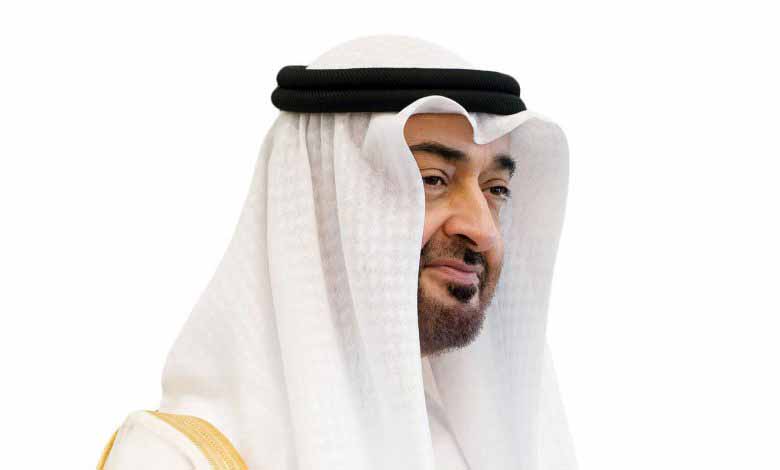New leadership appointments in the UAE and Abu Dhabi align with an ambitious action plan

“President Sheikh Mohamed bin Zayed al-Nahyan on Wednesday appointed his son Sheikh Khaled as crown prince in Abu Dhabi, while his brother named deputy prime minister Sheikh Mansour bin Zayed as vice president along with Sheikh Mohamed bin Rashid al-Maktoum.”
The appointments come at an important time for the UAE, which is implementing an ambitious plan of action announced by the president last year that aims to boost economic transformations that would achieve a qualitative leap at all levels and a leap in growth while taking advantage of local resources, capabilities and broad partnerships with international actors.
The Abu Dhabi Information Office said that Sheikh Mohamed, as ruler of Abu Dhabi, restructured the emirate’s Executive Council to be headed by Crown Prince Sheikh Khalid bin Mohamed bin Zayed.
The UAE’s official news agency (WAM) said that the president, in his capacity as ruler of Abu Dhabi, also appointed his brothers, Sheik Tahnoun and Sheikh Hazza, as deputy governors of the emirate.
Sheikh Tahnoun bin Zayed al-Nahyan serves as national security advisor and Sheik Hazza bin Zayed al-Nahyan serves as deputy chairman of the Abu Dhabi Executive Council.
These are the most prominent political appointments under Sheikh Mohamed since he took office in May 2022 following the death of his brother Sheikh Khalifa bin Zayed Al Nahyan.
“As ruler of Abu Dhabi, the head of state issues an Emiri decree appointing Sheikh Khalid bin Mohamed bin Zayed as crown prince of Abu Dhabi,” WAM tweeted. Sheikh Mohamed bin Zayed assumed the post himself before becoming head of state.
WAM added that “the head of state has issued a decree appointing Mansour bin Zayed as deputy head of state alongside Sheikh Mohammed bin Rashid.” Sheikh Mansour is the deputy prime minister and owner of the English football club Manchester City, while Sheikh Mohammed bin Rashid Al Maktoum is the ruler of Dubai.
“As ruler of Abu Dhabi, the head of state issues two Emiri decrees appointing Hazza bin Zayed and Tahnoun bin Zayed as deputy governors of the emirate of Abu Dhabi,” WAM said.
In addition to the post of national security advisor, Sheik Tahnoun also holds several positions in the oil-rich state, including chairing its sovereign fund. He recently led a campaign to zero in on problems, including mending relations with Qatar, Turkey and Iran, as part of an ambitious plan launched by Shei Mohamed bin Zayed to focus on boosting the country’s economic growth and regional stability and security.
“Since Sheikh Mohamed bin Zayed became UAE president, the vacant post of Crown Prince of Abu Dhabi has been in the spotlight.” His son, Sheikh Khalid bin Mohamed, is a member of Abu Dhabi’s executive council and head of the Abu Dhabi Executive Office.
Sheikh Mohamed bin Zayed, who was crown prince until he succeeded his brother Sheikh Khalifa, has played a significant role in boosting the UAE’s regional and international standing, as well as its economic revival.
Sheikh Mohammed became crown prince in November 2004, the third son of the late Sheikh Zayed bin Sultan Al Nahyan, the founder of the state. He also served as Deputy Supreme Commander of the Armed Forces and Chairman of the Executive Council of Abu Dhabi.
In a speech on the occasion of the 51st National Day of the State of the United Arab Emirates, President Sheikh Khalifa bin Zayed Al Nahyan outlined the need to focus on modern science and technology, to invest state resources and partnerships to promote national interests, and to employ cooperation and companies with active partners to serve the development goals of the state. He stressed the importance of adopting balanced, balanced and responsible policies on the regional and international arenas.
The new appointments are in line with the nation’s aspirations to achieve a clear plan of action and a forward-looking, balanced and rational approach that takes into account geopolitical shifts in the region and the world. It also comes as part of efforts to inject new blood into state institutions and into the agencies of the Emirate of Abu Dhabi.
It also refers in its timing and content to the continuous work of promoting growth and political stability in a way that serves national interests.
Three weeks ago, Abu Dhabi announced a number of economic measures, such as restructuring the management of the two largest sovereign wealth funds and appointing two prominent members to head a new government company to develop the emirate’s transport systems. The move appears to be an effort to support modernization and development efforts at various levels.
The Abu Dhabi Information Office said at the time that the Supreme Council for Financial and Economic Affairs had issued a decision appointing Sheikh Tahnoun bin Zayed Al Nahyan, Chairman of the Board of Directors of the Abu Dhabi Investment Authority, which is considered among the largest sovereign wealth funds in the world.












